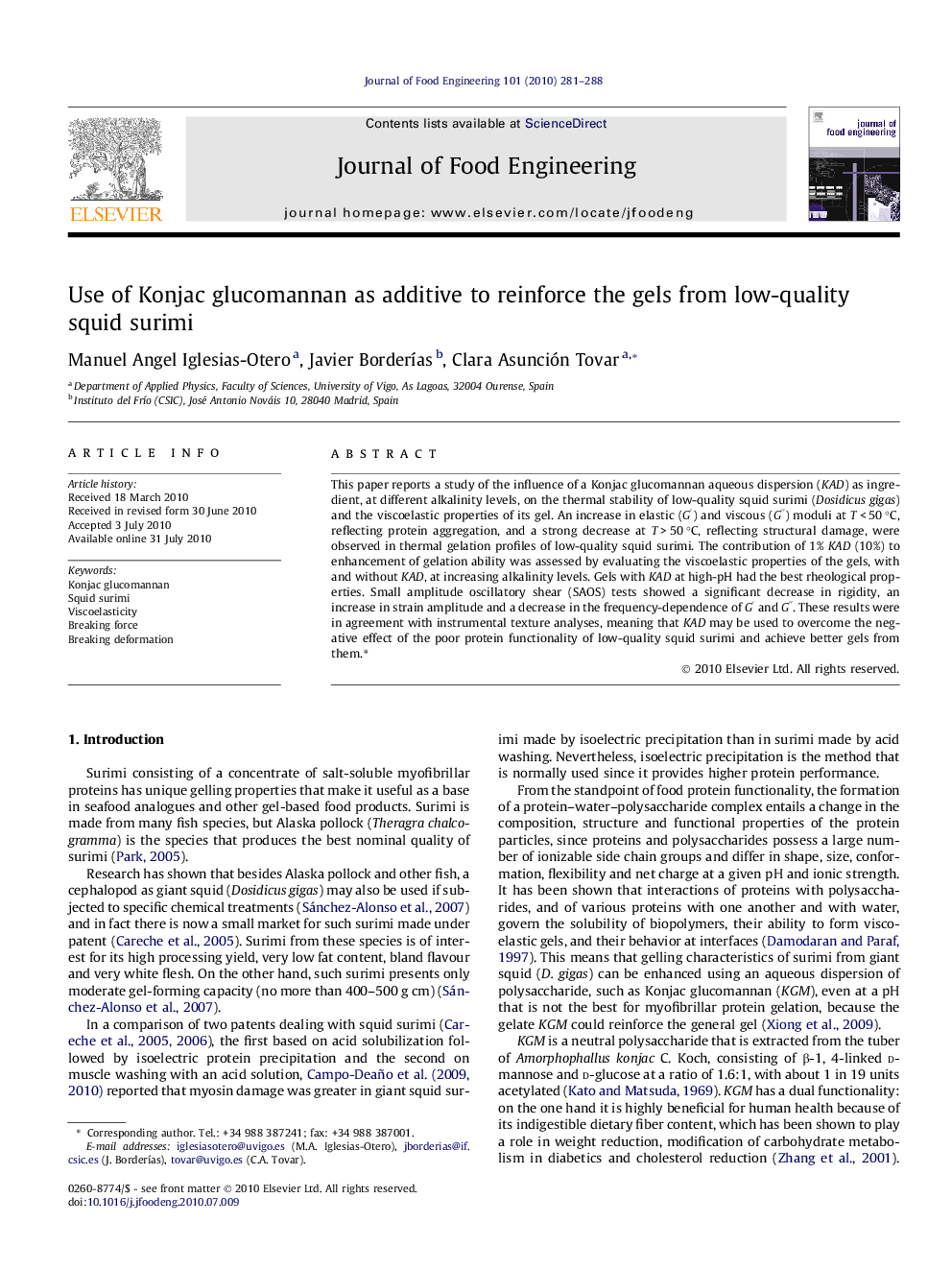| Article ID | Journal | Published Year | Pages | File Type |
|---|---|---|---|---|
| 224314 | Journal of Food Engineering | 2010 | 8 Pages |
This paper reports a study of the influence of a Konjac glucomannan aqueous dispersion (KAD) as ingredient, at different alkalinity levels, on the thermal stability of low-quality squid surimi (Dosidicus gigas) and the viscoelastic properties of its gel. An increase in elastic (G′) and viscous (G″) moduli at T < 50 °C, reflecting protein aggregation, and a strong decrease at T > 50 °C, reflecting structural damage, were observed in thermal gelation profiles of low-quality squid surimi. The contribution of 1% KAD (10%) to enhancement of gelation ability was assessed by evaluating the viscoelastic properties of the gels, with and without KAD, at increasing alkalinity levels. Gels with KAD at high-pH had the best rheological properties. Small amplitude oscillatory shear (SAOS) tests showed a significant decrease in rigidity, an increase in strain amplitude and a decrease in the frequency-dependence of G′ and G″. These results were in agreement with instrumental texture analyses, meaning that KAD may be used to overcome the negative effect of the poor protein functionality of low-quality squid surimi and achieve better gels from them.
